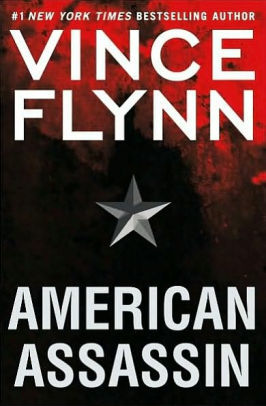
American Assassin
Chapter 6
by Flynn, VinceThe provided excerpt from Chapter 6 of *American Assassin* by Vince Flynn primarily consists of promotional material, critical acclaim, and publishing details rather than narrative content. The chapter opens with a note of gratitude to readers for downloading the book and encourages them to sign up for newsletters or visit the publisher’s website for more content. It highlights Flynn’s reputation as a leading voice in postmodern thrillers, with Mitch Rapp being compared to iconic characters like Jason Bourne. The text emphasizes the book’s explosive, fast-paced nature and its relevance to contemporary geopolitical tensions.
The excerpt includes a series of glowing reviews from notable publications and personalities, such as *The Providence Journal*, Glenn Beck, and Bill O’Reilly, praising Flynn’s gripping storytelling and Rapp’s appeal as a formidable CIA operative. Descriptors like “complex, chilling, and satisfying” and “pure high-powered exhilaration” underscore the novel’s intensity and timeliness in the post‑9/11 era. The reviews also commend Flynn’s understanding of counterterrorism and political intrigue, positioning the book as both entertaining and insightful for readers concerned with national security.
Additional sections list Flynn’s other works, such as *Pursuit of Honor* and *Extreme Measures*, reinforcing his prolific output in the thriller genre. The excerpt concludes with standard publishing information, including copyright details, ISBN numbers, and acknowledgments. Flynn expresses gratitude to his wife, editors, and collaborators, noting the solitary nature of writing and the collaborative effort behind publishing. He dedicates the book to the victims of the Pan Am Lockerbie attack, hinting at the novel’s thematic focus on terrorism and justice.
The chapter’s prelude briefly introduces Mitch Rapp in Beirut, Lebanon, setting the stage for the protagonist’s journey. Rapp’s reflection in a cracked mirror symbolizes his internal conflict and the high-stakes world he inhabits. While the excerpt lacks narrative progression, it effectively builds anticipation for Rapp’s transformation into a lethal operative, aligning with the book’s overarching themes of revenge, duty, and the moral complexities of counterterrorism.
FAQs
1. What is the significance of the title “American Assassin” in relation to Mitch Rapp’s character?
Answer:
The title “American Assassin” reflects Mitch Rapp’s transformation into a lethal CIA operative dedicated to combating terrorism. The promotional text describes Rapp as “the nation’s ultimate hero” and compares him to Jason Bourne, emphasizing his exceptional skills as a “CIA-trained human weapon.” The novel explores Rapp’s origins, showing how a young man evolves into a formidable force in America’s war on terror. This title encapsulates Rapp’s role as a patriotic vigilante who operates outside conventional boundaries to protect national security.2. How does Vince Flynn establish the tone and genre of “American Assassin” through the promotional excerpts?
Answer:
Flynn establishes a high-stakes, action-thriller tone through phrases like “explosive bestsellers,” “pure high-powered exhilaration,” and “nonstop action.” Critics compare it to postmodern thrillers, noting its “complex, chilling, and satisfying” nature. The excerpts highlight Rapp’s fearless persona and the novel’s timely relevance to post-9⁄11 security concerns. Descriptors like “roller-coaster, edge-of-your-seat thriller” and “deadly aim” signal a fast-paced, politically charged narrative with gritty realism, appealing to fans of military and espionage fiction.3. Analyze how the novel’s dedication to Pan Am Lockerbie victims connects to its themes.
Answer:
The dedication to Pan Am Flight 103 victims underscores the novel’s focus on terrorism’s human cost and the moral imperative of justice. By linking Rapp’s story to real-world tragedies, Flynn grounds the fiction in historical context, reinforcing themes of vengeance, patriotism, and the blurred lines between justice and retribution. This connection likely informs Rapp’s motivations, mirroring the real-world demand for accountability after terrorist attacks and framing the novel as a cathartic exploration of counterterrorism.4. What do the critical accolades reveal about Mitch Rapp’s appeal as a protagonist?
Answer:
Critics praise Rapp as “the best CIA-trained human weapon” and “a Rambo for the war on terror,” highlighting his competence, ruthlessness, and relatability as a post-9⁄11 hero. Reviews emphasize his complexity (“steely gaze,” “young man primed”) and the series’ balance of action and political insight. Rapp resonates because he embodies a fantasy of unfettered efficacy against threats that real-world bureaucracy often fails to address, offering readers both escapism and ideological satisfaction.5. How does Flynn’s background as noted in the acknowledgments shape expectations for the novel?
Answer:
Flynn thanks military and intelligence contacts (e.g., Rob Richer, ex-CIA), suggesting meticulous research to authenticate Rapp’s world. His mention of “hardware” and Beirut details implies gritty realism in tactics and settings. The acknowledgment of his wife’s patience during deadlines hints at the novel’s intensity. These elements prime readers for a technically accurate, high-stakes narrative that merges authentic tradecraft with cinematic action, aligning with the series’ reputation for “ingenious” plots.
Quotes
1. “Behind the steely gaze of the nation’s ultimate hero is a young man primed to become an AMERICAN ASSASSIN”
This quote encapsulates the core premise of the chapter - introducing Mitch Rapp as a formidable protagonist being shaped into America’s deadliest weapon. It highlights the origin story nature of this installment.
2. “Rapp is still the best CIA-trained human weapon this side of Jason Bourne.”
A significant comparison that establishes Rapp’s elite status among fictional operatives, emphasizing his skills and reputation within the thriller genre. This comes from critical praise for the character.
3. “Simply stated, there’s nothing better than watching Mitch Rapp in fiction knock off the bad guys nobody seems able to get in fact.”
This quote captures the wish-fulfillment aspect of the series, where Rapp succeeds where real-world counterterrorism efforts fail. It speaks to the series’ appeal and timeliness in the post-9⁄11 era.
4. “A Rambo perfectly suited for the war on terror.”
This succinctly positions Rapp as the modern iteration of the classic action hero, updated for contemporary geopolitical conflicts. The comparison helps define Rapp’s character and role.
5. “Every American should read this book.”
Bill O’Reilly’s endorsement underscores the series’ perceived relevance to national security discussions, suggesting it offers important insights about counterterrorism.
